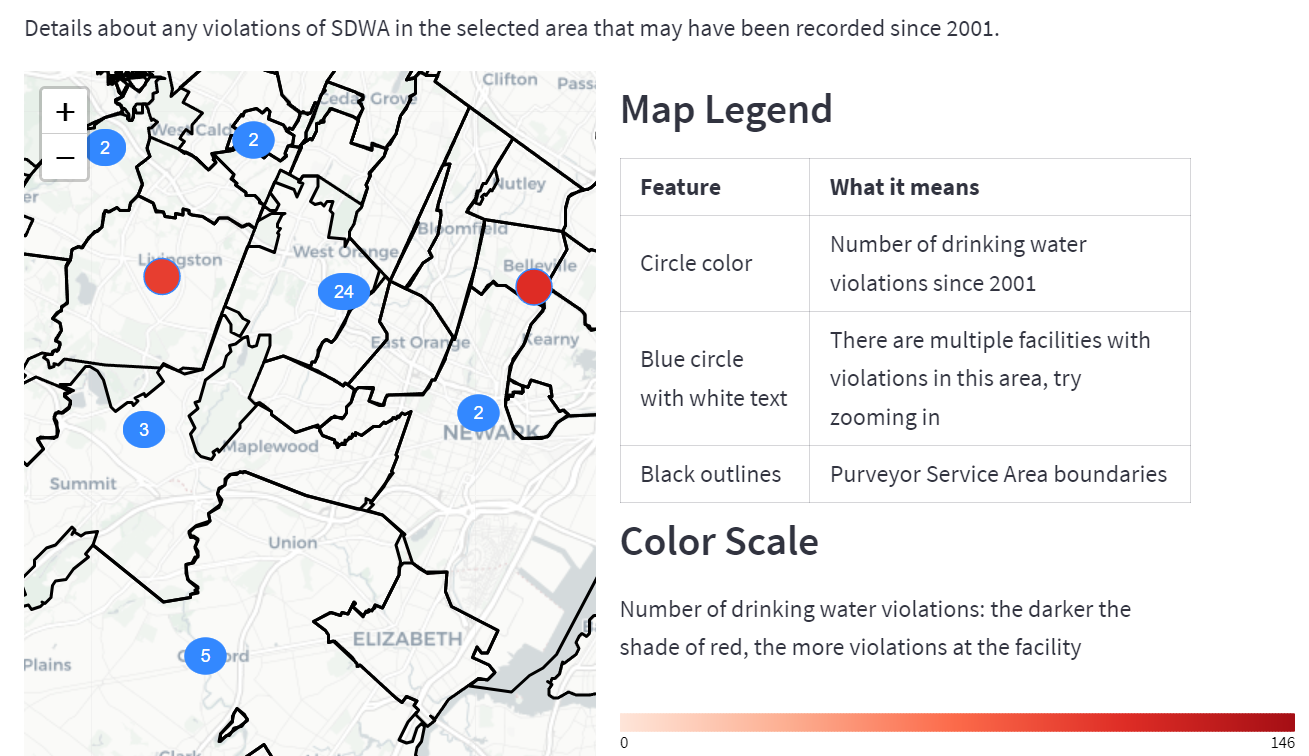Is it as safe to drink tap water in Paterson as it is in more affluent, whiter communities nearby, such as Wayne? EDGI’s new tool, available at sdwa-eew.streamlit.app, is designed for college students to answer questions such as this and explore the intersection of drinking water safety with social justice in New Jersey.
The tool walks users through an investigation of an area they select, overlaying EPA permit violation data with socioeconomic variables such as education, race, and linguistic isolation. Other pages in the tool count lead service lines, and chart the source and amount of contaminants released into local watersheds.
An expansion on prior work by EDGI’s Environmental Enforcement Watch (EEW) project, this tool achieves a new level of user-friendly interactivity, behaving as a fully-fledged website with downloadable data and graphs. Behind the scenes, the website has much in common with EEW’s prior Notebooks: it is open source, draws on many of the same ideas, and relies upon the same mirror of EPA’s data on the enforcement of and compliance with environmental protection laws hosted at Stony Brook University. It also includes additional contextual data from New Jersey-specific databases.
Drawing on the principles of environmental data justice, the tool prompts a user to not simply use the data as presented, but to question it. For instance, after displaying a graph reporting the proportion of SDWA-classified health-based violations in an area, the page prompts, “In addition to ‘health-based violations,’ how might failures to monitor and report drinking water quality, or failures to notify the public, also factor into health outcomes?” Other pages call out missing data, choices of what to measure, and inaccuracies in the regulators’ database.
The tool was built by EDGI members Eric Nost and Kelsey Breseman, who have been collaborating for several years on the EEW project. “I see these kinds of tools as the beginning of a path,” Breseman says. “Maps are inherently personal. The idea is to show people a novel view of a place they care about, and give them the tools to start asking important questions.”
Funding for this project comes from National Science Foundation Awards #2127334 and #2127335: “Collaborative Research: Socio-economic patterns, public perceptions, and climate vulnerabilities of water resources and quality”; Principal Investigators: William D’Andrea (Columbia), and Nicole Davi, Marianne Sullivan, and Lilian Milanes (William Paterson University). The tool is designed for use by the students of professors Marianne Sullivan and Lilian Milanes (WPUNJ), and Nikki Davis (Columbia) in their environmental justice classes.

